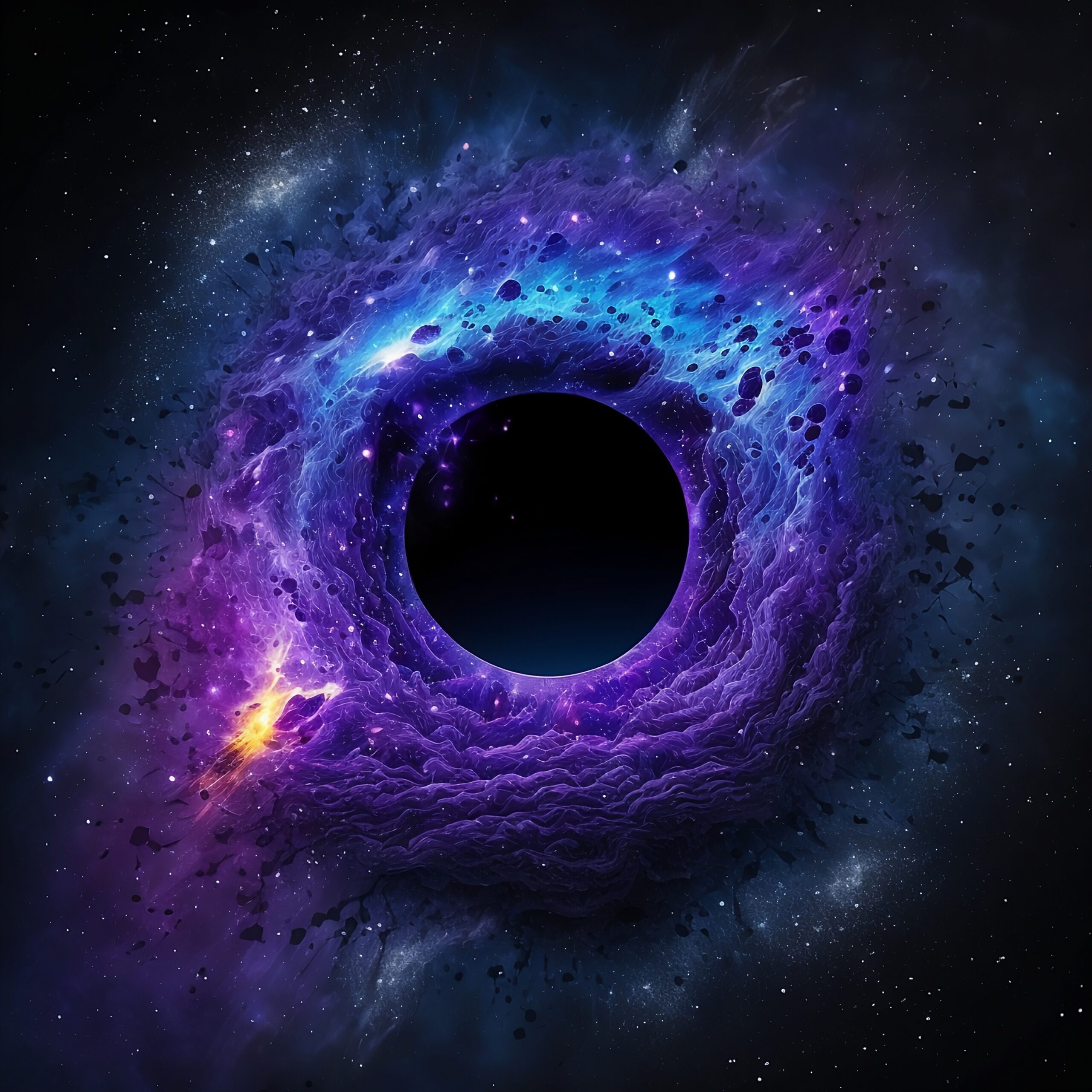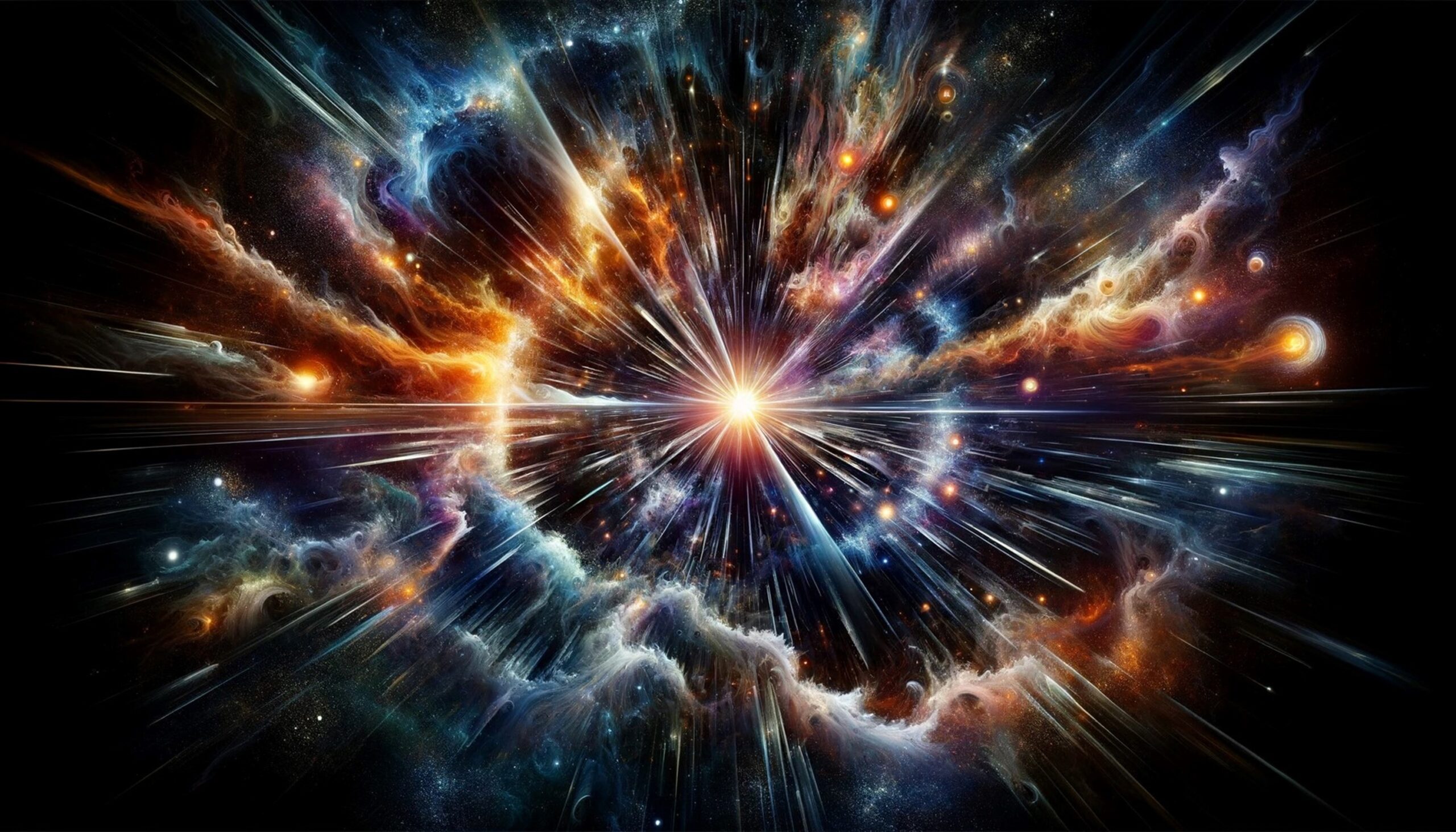Introduction
Black holes are known for consuming everything in their path—but can they die?
Scientists have long believed that black holes were eternal, endlessly devouring matter and growing larger with time. Their immense gravitational pull is so strong that nothing—not even light—can escape, making them seem like inescapable voids of destruction. However, renowned physicist Stephen Hawking made a groundbreaking discovery that changed our understanding of black holes forever. He proposed that black holes aren’t completely black—in fact, they slowly lose energy and mass through a process now known as Hawking Radiation.
What Makes a Black Hole ‘Alive’?
Before we explore how black holes can die, let’s first understand what keeps them “alive.”
A Quick Refresher on Black Holes
Black holes are born from the violent deaths of massive stars. When a star many times the mass of our Sun exhausts its nuclear fuel, it collapses under its gravity in a dramatic event known as a supernova. If the collapsing core is dense enough, no known force in the universe can stop it from compressing into a single point—this forms a black hole.
Two key features define black holes:
The Event Horizon – The boundary surrounding the black hole, beyond which nothing can escape. It’s the “point of no return” because the escape velocity required to leave exceeds the speed of light.
The Singularity – The infinitely dense core of the black hole, where all of its mass is concentrated. At this point, space and time cease to behave as we understand them.

Why Do Black Holes Seem Indestructible?
At first glance, black holes appear to be eternal cosmic monsters. Their immense gravity traps everything that crosses the event horizon, making them seemingly unstoppable. Unlike stars, which burn fuel and eventually run out of energy, black holes don’t have a conventional energy source to “burn out.” Instead, they continue to grow by consuming nearby gas, dust, stars, and even other black holes.
Since not even light can escape their gravitational pull, black holes seem completely isolated from the rest of the universe, locked in an unending existence. But as Stephen Hawking discovered, they are not as eternal as they seem. Something mysterious is slowly draining them of energy—and that’s where Hawking Radiation comes into play.
Stephen Hawking’s Discovery: Black Holes Aren’t Eternal
For centuries, black holes were thought to be unstoppable, consuming everything in their path and never losing mass. However, in 1974, physicist Stephen Hawking made a groundbreaking discovery that changed our understanding of black holes forever: black holes slowly evaporate. This phenomenon, known as Hawking Radiation, showed that black holes aren’t just cosmic vacuum cleaners—they also leak energy and can eventually disappear.
How Does Hawking Radiation Work?
Hawking Radiation is based on quantum mechanics, the strange rules that govern the tiniest particles in the universe. Here’s how it happens:
Virtual Particles and the Quantum Vacuum
In the vacuum of space, tiny pairs of virtual particles are constantly appearing and disappearing. These particle pairs—one particle and its antiparticle—momentarily pop into existence before annihilating each other and vanishing again.
What Happens Near a Black Hole?
Near the event horizon, something unusual can occur. If a pair of virtual particles forms just at the edge of the black hole, one particle might fall inside while the other escapes into space before they can annihilate each other.
Loss of Energy = Loss of Mass
The escaping particle takes energy away from the black hole. Since energy and mass are interchangeable (thanks to Einstein’s famous equation,𝐸 = 𝑚𝑐2), this means the black hole loses a tiny bit of mass every time this happens.
Gradual Evaporation
Over incredibly long timescales, this slow leakage of energy causes the black hole to shrink. The smaller it gets, the faster it evaporates—until, eventually, it disappears completely in a final burst of radiation.
Why Was This Discovery Revolutionary?
Before Hawking’s work, black holes were thought to be eternal one-way traps—once something fell in, it was gone forever. Hawking Radiation changed that perspective, proving that black holes are not just consumers, but also radiators that slowly lose energy. This also raised deep questions about the nature of information in black holes, sparking one of the greatest debates in modern physics: what happens to the information that falls into a black hole?
Hawking’s discovery was a major step toward unifying quantum mechanics and general relativity, two fundamental but conflicting theories of physics. It also introduced the mind-bending possibility that black holes might not be as permanent as we once thought—over time, even the largest black holes will eventually fade away.
What Happens After a Black Hole Dies?
If black holes slowly evaporate over time due to Hawking Radiation, what happens when they finally vanish? Does anything remain, or do they simply disappear without a trace? The answer is still unknown, but physicists have proposed several possibilities.
Complete Disappearance
One possibility is that when a black hole fully evaporates, it vanishes entirely, leaving behind nothing—no remnant, no trace, just empty space. In this scenario, all the mass and energy of the black hole would have been converted into radiation and released into the universe.
However, this explanation leads to a serious problem in physics: the Black Hole Information Paradox. According to quantum mechanics, information (such as the properties of particles that fell into the black hole) can never be destroyed. If a black hole disappears completely, where does that information go? This question has sparked one of the biggest debates in modern physics.
A Quantum Remnant
Some scientists believe that instead of vanishing completely, a black hole might leave behind a small, stable remnant—possibly a quantum-scale object that contains all the lost information. This would solve the information paradox by allowing the data from everything that fell into the black hole to remain in some form. However, no one knows what such a remnant would look like or how it would behave.
A Final Burst of Energy
As a black hole nears the end of its life, Hawking Radiation causes it to shrink rapidly. Some theories suggest that in its last moments, the black hole could explode in a final burst of high-energy radiation, releasing all its remaining energy in a violent flash. If this happens, it might briefly resemble a mini Big Bang, emitting a massive amount of radiation into the surrounding space.
Could It Release Trapped Information? (The Black Hole Information Paradox)
If black holes eventually disappear, what happens to the information that falls inside? This is one of the biggest mysteries in theoretical physics. Quantum mechanics says that information can’t be destroyed, but general relativity suggests that anything crossing the event horizon is lost forever.
Recent theories propose that information might not be lost after all. Some ideas include:
Soft Hair Theory – Black holes may store information on their event horizon in the form of low-energy quantum states.
Holographic Principle – The idea that all the information inside a black hole is encoded on its surface, meaning it never truly disappears.
Wormhole Hypothesis – Some physicists speculate that black holes might be linked to other regions of the universe via wormholes, allowing information to escape through an unknown mechanism.
The Fate of Black Holes: An Unsolved Mystery
Even though Hawking’s theory tells us that black holes will eventually evaporate, we still don’t know what happens at the very end. Do they leave behind a remnant? Do they release trapped information in some form? Or do they challenge the very foundations of physics?
Until we develop a complete theory of quantum gravity, the final fate of black holes remains one of the greatest mysteries in the universe.
Conclusion
For decades, black holes seemed like eternal cosmic giants, consuming everything in their path and never losing mass. But Stephen Hawking’s groundbreaking discovery revealed a shocking truth: black holes aren’t forever. Through the slow process of Hawking Radiation, they gradually shrink, fade away, and ultimately disappear.
However, what happens in those final moments remains a profound mystery. Do black holes vanish without a trace, or do they leave behind a quantum remnant? Could they release the information they once swallowed, solving the Black Hole Information Paradox? Science has yet to uncover the full answer, but one thing is certain—black holes challenge everything we think we know about the universe.
And that leads to an even bigger question: If black holes can die, does that mean nothing in the universe is truly permanent? Let’s discuss it!
Share the knowledge with


Brilliant post! This reminds me of the creative freedom in Sprunki Game – where hip-hop meets interactive music making.